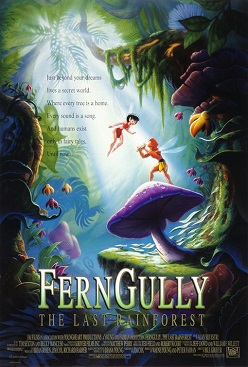 Image via Wikipedia
Image via WikipediaThe opening, of Surrogates, featuring a series of news clips marking the advancement of technology over the years, is an immediate red flag. Films that feel the need to dump a mini history lesson on the audience in the very beginning are usually the product of screenwriters or filmmakers that are either too lazy to explain the film’s setting through natural exposition, or severely underestimate the intelligence of the audience. This is the reason, for example, that Iron Man starts with a brief comedy/action scene transplanted from the middle of the film: to camouflage the Tony Stark Bio Montage as a transitional scene, rather than a quick info-dump.
However, in the case of Surrogates, this crash-course to avoid answering question throughout the film actually works to the film’s advantage. In the world of Surrogates, neurologically linked prosthetics have advanced to the point that remotely controlled full robotic automatons are commonplace. Originally intended to allow the paralyzed and handicapped to function normally in the world, Surrogates are instead used by a vast majority of the population, who sit at home in docking stations while indestructible versions of themselves take their places in the real world.
What is most surprising about the film is that it actually touches on the many themes for which type of scenario has the potential, more so than you would expect. Surrogates never fully resemble their users , but instead take on the role of either idealized self-images (younger, more attractive) or starkly contrasting fantasy personae (men masquerading as women, white and nerdy scientists as seven foot tall black men). Personal identity, public role-playing, self-hating attitudes and vanity run amok are just a few of the sociological viewpoints under examination here.
Then there is Bruce Willis’ character, a federal agent with a growing uneasiness towards Surrogate usage, fueled by his slowly crumbling marriage. Ever since a car accident that killed their only son, the still-mourning couple now interacts almost exclusively through their surrogates, demonstrating not only the emotional impact that such a tragedy can have on a couple, but the alienation that comes with human interaction through technology. This is complicated even more by Willis’ wife, played by Rosamund Pike, whose accident-scarred face is tragic reminder of her son’s death, one that she can only escape by living a new life in an artificial body. Even an advertisement for new surrogates for children raises even more issues: when it comes to the safety of your child, where do you draw the line between protection and isolation.
With this much depth going for it, you would think that the film would weigh anchor and build a story around these themes. Unfortunately, this is where the film ultimately fails, and where it all falls short: the apparent need by the studio for the film to fall into traditional action/sci-fi conventions. Ever since Terminator 2, any film involving robots invariably involves chases with super-strong/agile robots leaping around and shrugging off insane amounts of damage. Surrogates could have easily sustained several action sequences without resorting to robots throwing parking meters like javelins and wirework leaping effects straight out of Crouching Tiger, Hidden Dragon.
This need to transform the future to such an extreme level leads to several illogical and convoluted premises. First, there is the extreme implication that ninety-nine percent of the world now uses surrogates; home computers and iPods aren’t even that popular, and it is seriously debatable if they would be even if they were free, which Surrogates definitely aren’t. Then, just to draw a sharper contrast, the film reasons that in such a world, those who refuse to use surrogates would end up living in homeless shanty-towns designated as Technology-Free Zones where shooting at federal agents and publicly burning dead bodies are acceptable under their own independent laws. The film then examines the religious implications behind surrogates long enough to make the anti-surrogate movement seem like a cult (complete with wild-haired Ving Rhames spiritual leader), yet not long enough to explain why the Vatican hasn’t led a holy crusade against soulless automatons that apparently enable risk and guilt-free sex for their home-bound users.
Surrogates is indeed far better than expected, but that doesn’t make up for falling short of its potential. Instead of taking the premise into new directions that few features seem willing to confront, the film instead forces itself into the predetermined molds cast from studio sci-fi films of the past. Shooting for a strange hybrid of They Live, The Matrix and I, Robot invariably ensures a swing and a miss, especially with an ending reminiscent of Escape from LA pasted on like a happy little bow. This is not to say that it isn’t worth watching. Just be prepared to be equally surprised and disappointed.
![Reblog this post [with Zemanta]](http://img.zemanta.com/reblog_e.png?x-id=7b79c7ad-008b-4e21-a13b-8e7c9e101053)


![Reblog this post [with Zemanta]](http://img.zemanta.com/reblog_e.png?x-id=8c984d29-b15e-476c-a537-14aa7efaeeed)

![Reblog this post [with Zemanta]](http://img.zemanta.com/reblog_e.png?x-id=8ab77866-5fff-43c4-a68f-c61608e67a01)


![Reblog this post [with Zemanta]](http://img.zemanta.com/reblog_e.png?x-id=ddfa59d9-a2cc-46b7-8c3d-e15ec88db49b)

![Reblog this post [with Zemanta]](http://img.zemanta.com/reblog_e.png?x-id=f14c846e-eaeb-4971-a3ec-85056f278fe2)